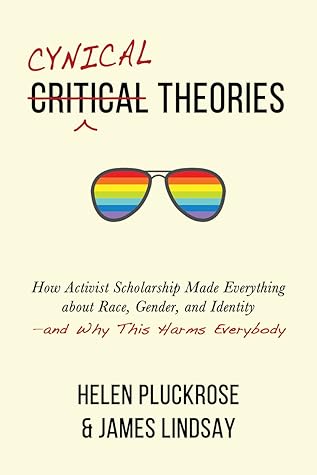More on this book
Community
Kindle Notes & Highlights
It is simply astonishing that over the same twenty year period (1960–1980) during which women gained access to contraception and equal pay for equal work, racial and sexual discrimination in employment and other areas became illegal, and homosexuality was decriminalized, the postmodernists emerged and declared that it was time to stop believing in liberalism, science, reason, and the myth of progress.
Liberal science, to Rauch, is a system that applies two consistent rules: the “skeptical rule” and the “empirical rule.”17 These he summarizes as “no one gets the final say” and “no one has personal authority,”18 respectively, arguing that “these peculiar rules are two of the most successful social conventions the human species has ever evolved.”
The “checking of each by each” is effectively impossible in Theory, as people from different identity groups can never fully understand each other. This is the essence of the postmodern knowledge principle. It is clear that postmodernism contains a rejection of liberalism at its very core.
There is nothing that postmodern Theory can do that liberalism cannot do better,
The postmodern knowledge principle exhorts us to do a better job of listening and considering and listening and investigating. However, we are under no obligation to “listen and believe” or to “shut up and listen.” Demands that we circumvent or discard epistemological rigor even for the best of causes cannot be complied with in a liberal society because causes simply aren’t best served this way.
For example, the worth of a law cannot best be gauged by the lived experience of those whom it has helped or harmed. The former are likely to ask for it to be preserved and the latter to want it repealed—and both these perspectives are valuable, but incomplete. The liberal approach would be to listen to both parties, consider their points carefully, and make arguments about what needs to be conserved and what reformed.
The postmodern political principle holds that the social construction of knowledge is intimately tied to power, and that the more powerful culture creates the discourses that are granted legitimacy, and determines what we consider to be truth and knowledge, in ways that maintain its dominance. It sees the world as a zero-sum power game and a conspiracy theory without individual conspirators.
The idea that social justice is best served by restricting what can be said, and by banning some ideas and terminologies and enforcing others, is unsupported by history, evidence, or reason. The power to designate some ideas virtuous and thus utterable and others appalling and thus forbidden is always in the hands of those who hold the majority view (or who hold political power). Historically, censorship has not worked out well for atheists, or for religious, racial, or sexual minorities—and there’s no reason to believe that Theory contains a magic ingredient that might make censorship work
...more
Social justice—the principle, not the ideology—can only be served if we have consistent principles. Women’s rights, LGBT rights, and racial or caste equality must either be the right of all people or of none. Claims that only the women, LGBT, and members of a minority group within a specific culture or subculture may critique the oppression of their own group are a failure of both empathy and ethical consistency.
By seeking to divide humans into marginalized identity groups and their oppressors, Social Justice risks fuelling our worst tendencies—our tribalism and vengefulness.
If a majority feels threatened by a vocal minority with institutional power, it is likely to try to change those institutions, and not merely because of paranoid fears about losing dominance and privilege once had.
This leaves only those with the most extreme voices to speak up against Social Justice, and to the degree they can be perceived as speaking an obvious truth that no one else will say, they will gain support they would not otherwise have been able to garner. In this way, through the systematic and near-total silencing of reasonable and moderate voices from the left, center, and center-right, Social Justice opens itself and our society up most precariously and certainly to an authoritarian far-right backlash. (This, it will then uselessly interpret, of course, as more proof that our society is
...more
It is one thing to believe that knowledge is a cultural construct that is used to enforce power, and that this can occur in unjust ways. This is an argument that can be submitted to the marketplace of ideas. It is quite another thing to take this belief as a given and assert that to disagree is, in itself, an act of dominance and oppression.


